- Home
- Colleen Gleason
The Clockwork Scarab s&h-1 Page 8
The Clockwork Scarab s&h-1 Read online
Page 8
“Yes, of course,” she said dismissively as we edged along with the cluster of figures. “Once discovered, the message had to be exceedingly simple to interpret.”
I was proud of myself for not planting my foot on the hems of her full skirts. Instead, I fingered the stake deep in my pocket and bit my tongue.
We climbed into the automated vehicle amid other cloaked figures who spoke briefly and in hushed voices. I’d never encountered a group of females who could be this quiet for so long. There’d hardly been a titter or giggle since I arrived.
I disliked the new carriages, propelled by a steam engine and with no visible driver or engineer. They ran on some sort of magnetic tracking system. Ever since the Moseley-Haft Steam-Promotion Act had been passed by Lord Cosgrove-Pitt and his Parliament, everyone in London had been keen on them and anything else that could be mechanized and automated. The current favorites were the sleek trolleys that were narrow enough to pass along even the uppermost streetwalk levels, the vehicles just wide enough for two people to sit side by side.
The trolley’s doors closed. Miss Holmes tensed as I swallowed a thrill of excitement. The only thing I had cause to fear was a vampire . . . and as I didn’t sense any UnDead in the vicinity, I settled in for an adventure.
There were no more than a dozen of us. From the amount of eau de toilette clogging my nose, it smelled as if each one of those present had spilled an entire bottle of perfume over her bodice. In the close quarters, my eyes began to water, and I had to pinch my nose to keep from sneezing.
My partner murmured street names, landmarks, and observations as we drove along at ground level. I had to reluctantly appreciate her comments. Unlike Miss Holmes, I didn’t know the name of every single alleyway, bypass, or mews, let alone the different combinations of street levels and how the addresses worked. I’d always been awestruck by the height of the buildings and how close they swayed toward one another. And I wasn’t convinced that the helium-filled sky-anchors attached to the tops of the tall structures did anything to keep their tops from bumping into each other.
More than once, I’d been resigned to walking at ground level because I’d forgotten to bring coins with me. You needed them to insert in the street-lifts to take a ride to the less smelly, cleaner, brighter level of fly-bridge. But I was very familiar with the smell of saltwater, algae, and fish that lingered near the docks, and when those aromas drowned out the perfumes from my companions, I realized we’d reached the East End and shipping yards on the Thames.
“Wapping,” Miss Holmes muttered, and I looked out onto the street to see the gaslit sign for that underground railway station. The area was deserted, for trains didn’t run this late at night.
When the trolley turned, maneuvering into the narrow passage between the station and its adjoining building, the interior became darker. The car stopped, and I felt my companion’s attention sharpen.
A nervous giggle broke the silence, then a loud mechanical hiss startled the girl across from me. The door slid open to reveal a slender female figure holding a lantern. Her features were shadowed in part by a tall hat with a low-riding brim.
“Please disembark, ladies,” said the woman, and gestured with a gloved hand.
We exited the trolley car and followed our hostess’s mellow golden light down the alley at ground level. I managed to avoid stepping in anything that was soft and smelled disgusting, but Miss Holmes wasn’t as agile.
“Drat,” she muttered, pausing to scrape her shoe on a stone. “We’re going toward the river.”
Were they taking us to a boat? I groped in a pocket for my knife. I’d never had cause to use it, and I hoped tonight wouldn’t change that. But before we reached the river, our guide gestured to the entrance of an octagonal structure built into the side of Wapping Station. “This way, ladies,” she said as we walked through the door into a high-ceilinged, eight-sided chamber.
Although we still wore our cloaks, my companion and I held back. Until now, we’d been protected by our anonymity. But now there was the chance we might be recognized in the brighter light as uninvited guests.
I looked at as many of the hooded faces as I could see, and recognized several. All young women. All my age. Most from upper-class families, some from wealthier trade families. Each one of them vibrated with excitement. No one seemed to notice or care that we had joined them.
The windowed chamber was empty except for a grand staircase that led down into darkness. Dirty gold paint peeled from ornate molding around a high octagonal ceiling. There were other signs of neglect: a ragged chandelier and a few dusty, broken benches.
“The Thames Tunnel,” Miss Holmes informed me as we began to shuffle with the rest of the group toward the stairs. “The first underwater tunnel ever constructed. The engineer, Marc Brunel, first proposed his excavation plan to Czar Nicolas of Russia—”
“It goes beneath the river?” I interrupted as the lantern began to descend in the hand of its carrier, leaving the room to darken by degrees.
She nodded. By now, the other young women were following the lantern down the staircase, but my companion seemed more interested in giving me a history lecture. She held back.
“It’s part of the Underground now,” she told me, speaking rapidly near my ear. “But in the fifties, it was open to the public. People could walk through to the other side of the river, and there were vendors and shops down there and entertainers—”
“Let’s go,” I said, but her fingers curled around my arm, holding me back.
“I don’t think I can. I don’t like . . . close, dark places. Deep places.”
“Brilliant,” I said, peeling her fingers away. “You stay here and keep watch. I’m going down there to see what’s happening.”
Without a backward glance, I moved toward the grand staircase. I justified abandoning her because she hadn’t waited for me at Cosgrove Terrace. Miss Holmes would have left without me if I hadn’t shown up. Besides, I was used to working alone. I didn’t want anyone hampering me. And it was prudent to have someone keeping watch in case the worst happened.
Not that I thought she’d be all that much help if it did.
I pushed away my gnawing conscience as I hurried down the steps. Some people were meant for adventure, and others—as she’d pointed out to me—were meant to merely observe. Miss Holmes could observe all she wanted.
I was going to do something.
My pulse picked up. There could be vampires lurking below, living underground safe from the sunlight. This could be my chance!
The rest of the group had reached a spacious landing, and the glowing yellow lantern led the way down another set of stairs. We were probably a hundred feet below the ground (I was sure Miss Holmes would know exactly how deep the Thames Tunnel was) and for the first time, the handmaker in me wondered why there wasn’t a lift or some other mechanized way to descend. The walls yawned around us, and I pushed away a niggle of guilt for leaving her alone. Bloody beans, I wasn’t the girl’s governess!
Just as I began to start down the second flight, I glanced up and saw a clear white light, very small, bobbing ever so slowly down the stairs.
It had to be Miss Holmes. Blast. Closing my eyes briefly, I let my conscience take over. I waited . . . for a minute. But she was moving so slowly I lost my patience and started back up the steps to meet her.
“Hurry.” I tugged on her arm.
She gave a whimper, and then I saw her eyes were closed. I wanted to laugh. Wasn’t it darker behind closed eyelids than in here with her light?
“Come on,” I said, towing her down the stairs. I think she kept her eyes closed all the way to the bottom. But she kept going, even though her fingers felt like they were digging through my skin and muscle clear to bone. My impatience ebbed when I remembered the way she’d stepped in and helped me last night. She never said a word about my reaction to Miss Hodgeworth’s body.
At the bottom of the steps, we found ourselves inside the train station. However, we were o
n the rear side of the two parallel rows of tracks. Each track disappeared into its own dark tunnel, and I could see light glowing down one of them. A single lantern hung on the far side of the space, casting a weak circle.
“Miss Holmes. You can open your eyes now. It’s not dark. Let’s go,” I said, starting off down the tunnel to the right, where I could see illumination in the distance as well as the lamps glowing at intervals along the tunnel.
As we hurried along the walkway beside the train track, I noticed large, dark archways connecting the two tunnels. Each time we approached one, I peered into the darkness to see if danger lurked. I also carried my knife.
“When the Thames Tunnel was open to the public, the vendors set up shops inside those arches,” Miss Holmes informed me. “It was a very busy shopping district for some time. There were a variety of shops, most of which carried imported items and all of which were expensive.”
She droned on, and I noticed that the moving lantern ahead of us had disappeared. Our quarry had made a turn, and I had no idea where.
“Hurry,” I said.
We had taken a few more steps when two dark shapes emerged from the shadows and stood blocking our way. One of them held something that gleamed silver in the light of his accomplice’s lantern.
“An’ wha’ ’ave we ’ere now, Billy,” said the one with the lantern. Grinning, he lifted it high to examine us. And, mackerel’s eyes, I could see the bloody sot needed at least three teeth pulled. “Looks’a like we got a coupla nice, prime peaches ’ere.”
“A pritty pair, they is,” agreed a voice.
From behind us.
I kept the knife hidden in the folds of my skirt. Though my heart was pounding, I made my movements slow and easy as I turned to see what mischief had sneaked up on us. Meanwhile, Miss Holmes dug frantically among her skirts. What good is being armed if you can’t get the blasted weapon out when you need it?
Behind us were two more men. One had a wooden truncheon, and the other was flexing his hands. No red eyes, no uncomfortable, prickly chill over my neck . . . these were mortal men. I relaxed. This would be amusing.
“I assume,” I muttered, “you don’t have that bloody Steam-Stream gun in your skirts.”
“No,” she murmured back from the side of her mouth. “But I have—”
“Never mind.” I turned back just as the man with the knife swiped a hand toward me.
I dodged and then, to his surprise, lunged toward him. My cloak flapping, I caught him in the midriff with my head, sending him tumbling to the ground. Before he even hit the dirt, however, I spun toward the lantern man, whipping my cloak off and into his face as I did so. Kicking out with a well-placed foot, I felt a rush of satisfaction when my shoe connected with a soft area on his person. He squealed like a dry wheel cog and dropped the lantern as he collapsed.
Exhilarated, I turned to meet the man with the truncheon as he rushed up behind me. His club whistled through the air, and with a cry of delight, I ducked beneath it, then leapt behind him as the force of his would-be blow sent him pivoting around to face me.
I glanced over as I surged upright and saw Miss Holmes staring at me, her eyes wide. She held something in her hand, and a dark figure was crumpled on the ground at her feet.
My assailant must also have noticed his companions had been disabled, for he began to back away into the shadows. “Don’ mean n’arm t’ye, loydies. Jus’ tryin’ t’be fren’ly.”
I stepped toward him, brandishing my knife, showing him a tight, feral grin. He stumbled backward, then spun and dashed into the darkness.
Knowing my job wasn’t done, I turned back to the first two. One of them had dragged himself off, and the other was still a sobbing bundle of skin and bones. He was hardly worth the effort, but I walked over to him and placed my foot on the hem of his coat anyway. “I took it easy on you tonight.” I gave him a good look at my knife. “Next time we meet, I won’t be so friendly.”
His eyes goggled, and he managed to nod.
“Get out of here,” I said, and watched with satisfaction as he crawled off into the darkness. When I turned back to Miss Holmes, she was looking at me as if I’d grown another head. I gestured to the last attacker, who still lay unmoving on the ground. “What did you do to him?”
She handed me a slender metal object and explained, “It sends a little shock of steam. Unfortunately, it only works once, and only at close range.”
We vampire hunters had been fighting with stakes and swords and knives for centuries. We didn’t need cognoggin gadgets like that. Still . . . I felt a pang of fascination and maybe a bit of envy. “It’s brilliant.”
“You were brilliant. I—you moved so fast! And you’re strong. Really strong.”
I was a little stunned by her words and admiration, and it took me a moment to respond as I patted my hair back into place and picked up my cloak. “I’m a Venator. It’s what I’m called to do. To be.”
“And your gown! It’s all beyond cleverness to have split skirts—you have such freedom of movement. I shall have to have some of my own made if these sorts of events are going to occur regularly.”
“Thank you,” I said, choosing not to point out that she could hardly expect to be as accomplished a fighter as I was.
“What I find difficult to comprehend is how you can inflict such pain and violence so easily and yet become ill at the very sight of blood.”
My smile faded. “Right. Well, it’s quite simple. Vampires don’t bleed.”
Or so I’d heard.
Miss Holmes
An Introduction to a Secret Society
Filled with admiration for the way Miss Stoker had flown into action so competently and gracefully, I confess I was a bit distracted as we hurried along the tunnel after our quarry.
That doesn’t mean I neglected to take note of the environment: the remnants of old shops in the alcoves, the evidence of human presence and of the nonhuman creatures that existed below the streets. Because of my dislike of dark, deep places, I’d never ventured into the infamous London sewers, where the tosher men lived and dredged up anything of value from the sludgy waste.
We’d lost our group by sight, but we were able to hear them and use the sound as guidance. It led us to a bright tunnel perpendicular to the railroad tracks, and off that tunnel was a room. Its door was open.
Miss Stoker and I approached the chamber, but seemed to draw no attention, for the rest of the young women were standing about talking in small groups.
The place could have been a parlor inside any well-appointed home during an afternoon tea party or musicale. It was lit by numerous electric lights, which gave off a cleaner, whiter light than gas lamps, but had been made illegal by the Moseley-Haft Act. The room was comfortable in temperature without the lingering dampness that pervades underground spaces, and was furnished with rows of upholstered chairs. Rich, heavy fabrics had been draped on the walls, and a small table of refreshments held lemonade, tea, and a generous assortment of biscuits. An odd scent lingered in the air, and I sniffed. Sweet and pungent, with an underlying note of muskiness.
At the front of the chamber stood an imposing statue of Sekhmet. The representation of the half-lion, half-woman stood a head taller than a man. Her regal body was shiny gold, and her leonine snout was rounded and feminine, yet fierce. Despite the fact that Sekhmet was a goddess, she was shown with a male lion’s long, smooth mane. As was common in the depiction of any immortal, she had a disk atop her head. This represented her deism in relation to Ra, the sun god. A cobra in mid-lunge curled out from the circle.
Sekhmet’s dark eyes captured my attention. Despite the fact they were carved from whatever medium the statue was cast (I couldn’t tell for certain if it was gold or merely painted to look that way), those orbs were clear, shiny, and seemed alive.
I suspected this was the same Sekhmet statue that had somehow caused Mr. Dylan Ekhert’s mysterious journey.
I turned to the group of young women. Their hoods had becom
e slack, and I could see the faces of many of them. Counting fifteen in the room, I recognized some as familiar, but I knew none of their names. I judged them all to be between sixteen and eighteen years. Each was well dressed, with fancy coiffures and jewelry, and I glimpsed fine fabrics beneath the cloaks, confirming my deduction that they were all attendees of the Cosgrove-Pitt ball. They talked and laughed among themselves, and energy and excitement filled the air. My sharp eyes found no sign of the shadowy figure who’d carried the lantern and led us all to this place.
A delicate chime sounded from near the front of the chamber, and the occupants appeared to take that as a signal to find a seat. Just as Miss Stoker and I slipped into chairs in the last row, a door hidden by one of the wall hangings near the statue opened and the room fell silent. The only sound was from a young woman in front of me. If the noisy masticating coming from the vicinity of her jaw was any indication, she was enjoying a very crunchy biscuit.
In walked two women carrying torches, garbed in long, shimmering golden tunics. Around their necks, covering their shoulders and upper torsos, were the large, circular Egyptian usekh—the iconic gold collars worn by pharaohs. Both women wore heavy black eyeliner that extended beyond the outside corner of each eye and ended in a little circular flourish, as well as blue-shaded coloring on their eyelids. Their dark red lips, pale cheeks, and black hair pulled back into sleek chignons made them appear identical—although observation confirmed that they were not.
The pair walked toward the statue of Sekhmet, each placing a fiery torch in a sconce on either side of it. It was an odd sight: the ancient statuary from Egypt flanked by primitive flaming torches in a modern chamber illuminated by artificial light.
“Welcome to the Society of Sekhmet,” said one of the women as they turned to face the group.
“The Ankh is pleased that you have accepted its special invitation,” said the other.

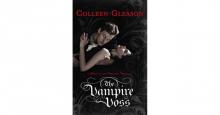 The Vampire Voss
The Vampire Voss Lavender Vows
Lavender Vows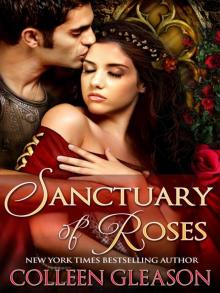 Sanctuary of Roses
Sanctuary of Roses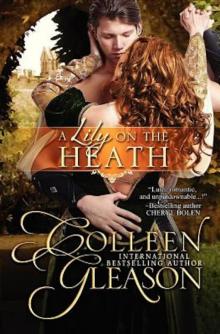 A Lily on the Heath
A Lily on the Heath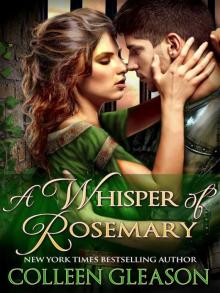 A Whisper Of Rosemary
A Whisper Of Rosemary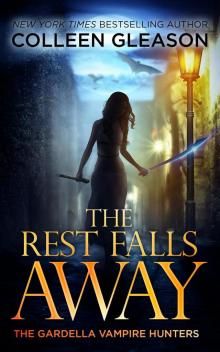 The Rest Falls Away
The Rest Falls Away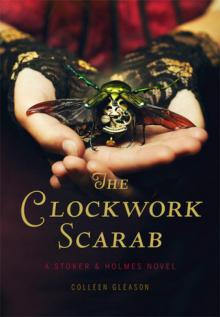 The Clockwork Scarab
The Clockwork Scarab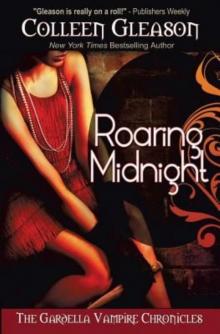 Roaring Midnight
Roaring Midnight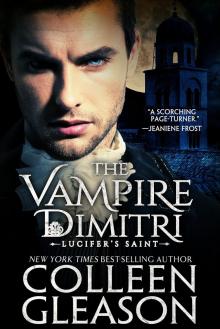 The Vampire Dimitri
The Vampire Dimitri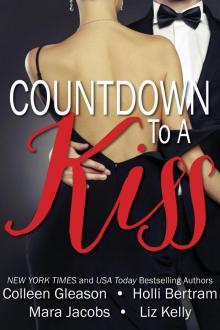 Countdown To A Kiss A New Years Eve Anthology
Countdown To A Kiss A New Years Eve Anthology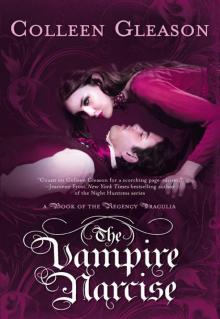 The Vampire Narcise
The Vampire Narcise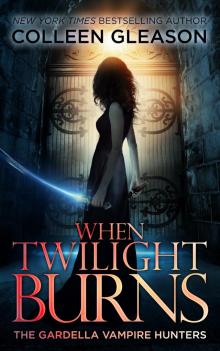 When Twilight Burns
When Twilight Burns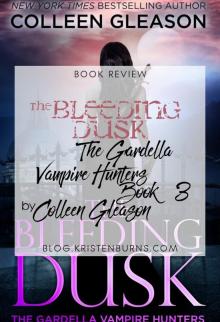 The Bleeding Dusk
The Bleeding Dusk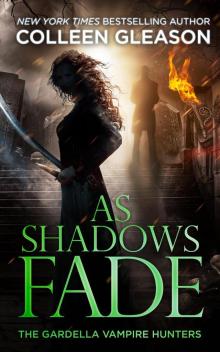 As Shadows Fade
As Shadows Fade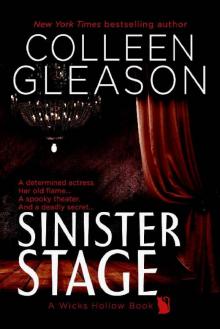 Sinister Stage: A Ghost Story Romance and Mystery (Wicks Hollow Book 5)
Sinister Stage: A Ghost Story Romance and Mystery (Wicks Hollow Book 5)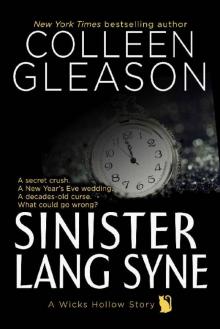 Sinister Lang Syne: A Short Holiday Novel (Wicks Hollow)
Sinister Lang Syne: A Short Holiday Novel (Wicks Hollow)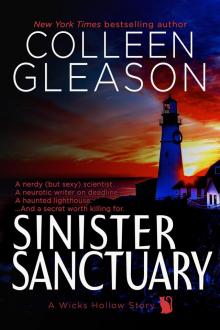 Sinister Sanctuary
Sinister Sanctuary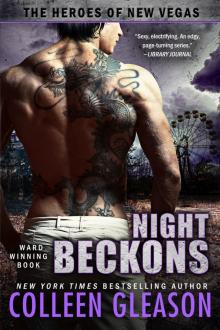 Night Beckons
Night Beckons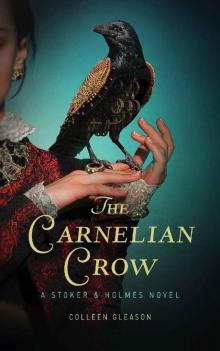 The Carnelian Crow: A Stoker & Holmes Book (Stoker and Holmes 4)
The Carnelian Crow: A Stoker & Holmes Book (Stoker and Holmes 4)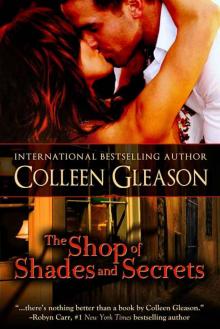 The Shop of Shades and Secrets (Modern Gothic Romance 1)
The Shop of Shades and Secrets (Modern Gothic Romance 1) Lavender Vows tmhg-1
Lavender Vows tmhg-1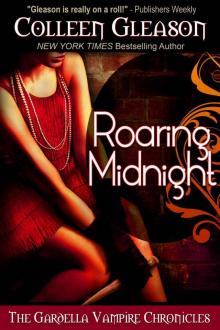 Roaring Midnight (The Gardella Vampire Chronicles | Macey #1)
Roaring Midnight (The Gardella Vampire Chronicles | Macey #1) Lavender Vows (The Medieval Herb Garden Series)
Lavender Vows (The Medieval Herb Garden Series) Dark Secrets: A Paranormal Romance Anthology
Dark Secrets: A Paranormal Romance Anthology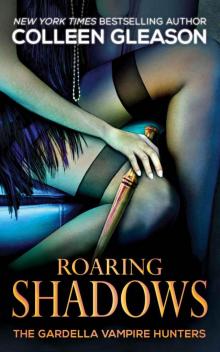 Roaring Shadows
Roaring Shadows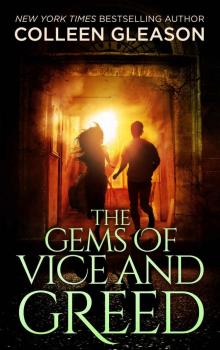 The Gems of Vice and Greed (Contemporary Gothic Romance Book 3)
The Gems of Vice and Greed (Contemporary Gothic Romance Book 3)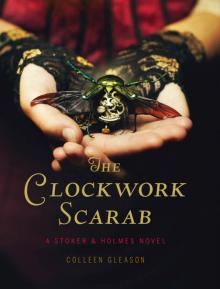 The Clockwork Scarab s&h-1
The Clockwork Scarab s&h-1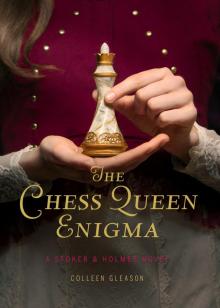 The Chess Queen Enigma
The Chess Queen Enigma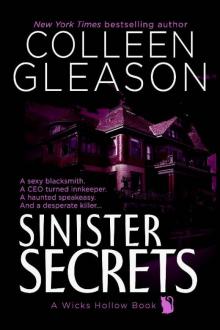 Sinister Secrets
Sinister Secrets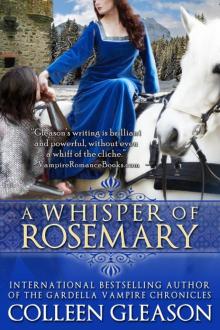 A Whisper of Rosemary (The Medieval Herb Garden Series)
A Whisper of Rosemary (The Medieval Herb Garden Series) Dark and Damaged: Eight Tortured Heroes of Paranormal Romance: Paranormal Romance Boxed Set
Dark and Damaged: Eight Tortured Heroes of Paranormal Romance: Paranormal Romance Boxed Set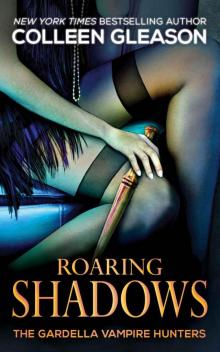 Roaring Shadows: Macey Book 2 (The Gardella Vampire Hunters 8)
Roaring Shadows: Macey Book 2 (The Gardella Vampire Hunters 8)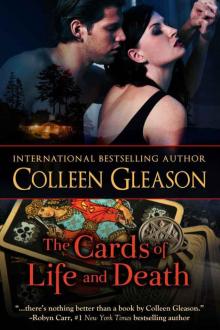 The Cards of Life and Death (Modern Gothic Romance 2)
The Cards of Life and Death (Modern Gothic Romance 2)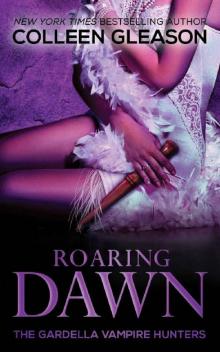 Roaring Dawn: Macey Book 3 (The Gardella Vampire Hunters 10)
Roaring Dawn: Macey Book 3 (The Gardella Vampire Hunters 10)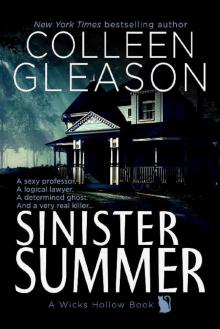 Sinister Summer
Sinister Summer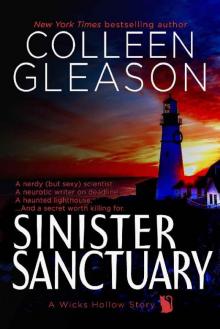 Sinister Sanctuary: A Ghost Story Romance & Mystery (Wicks Hollow Book 4)
Sinister Sanctuary: A Ghost Story Romance & Mystery (Wicks Hollow Book 4)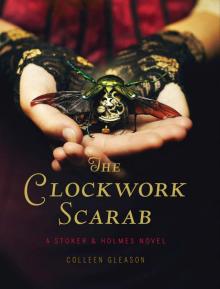 The Clockwork Scarab: A Stoker & Holmes Novel
The Clockwork Scarab: A Stoker & Holmes Novel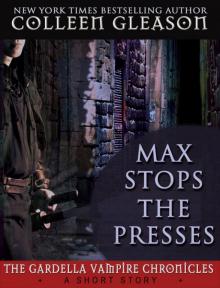 Max Stops the Presses
Max Stops the Presses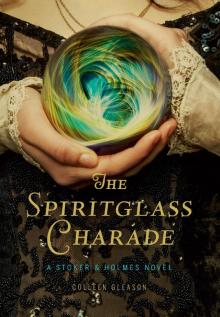 The Spiritglass Charade
The Spiritglass Charade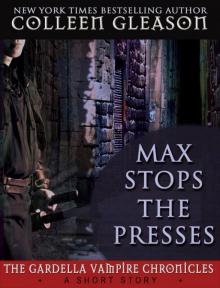 Max Stops the Presses: A Gardella Vampire Chronicles Short Story
Max Stops the Presses: A Gardella Vampire Chronicles Short Story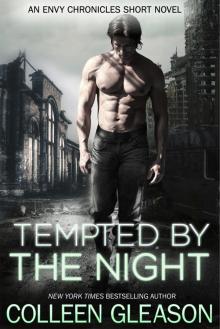 Tempted by the Night
Tempted by the Night